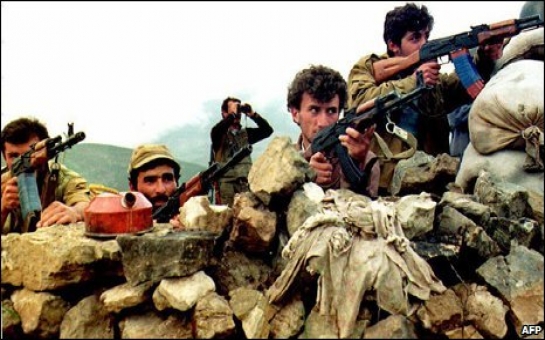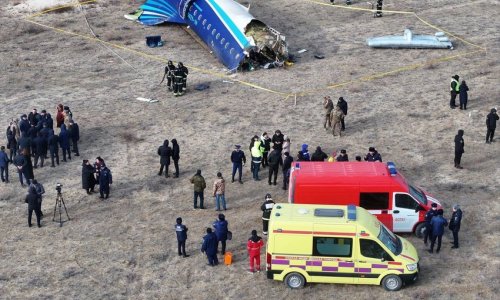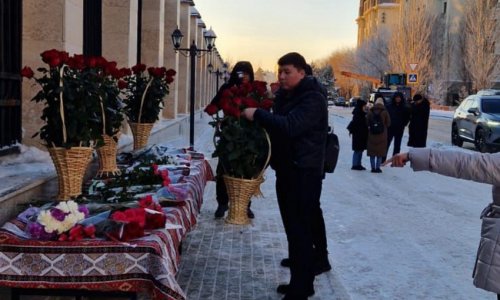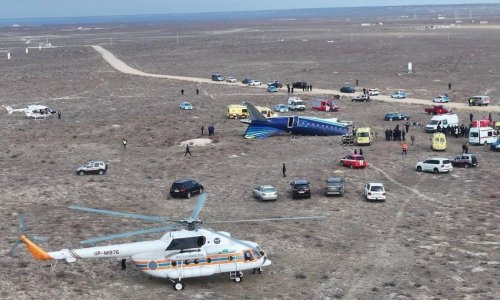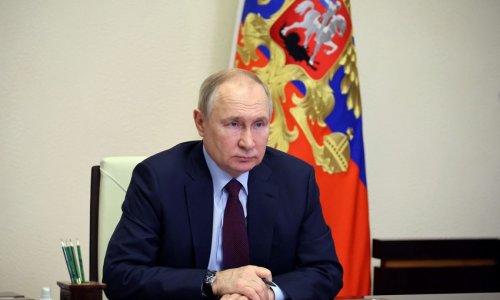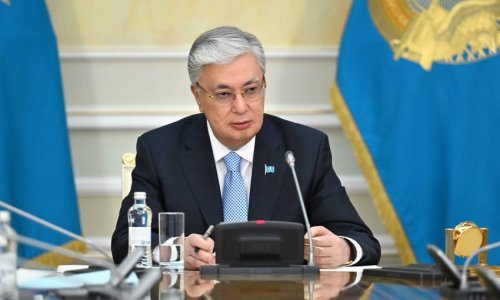The renewed ruckus between Armenia and Azerbaijan has prompted calls for rehashing the international approach to finding a peaceful resolution to the 26-year-long Nagorno-Karabakh conflict. But, so far, it appears to be only Russian President Vladimir Putin who's planning to meet with the two countries' leaders.
The reasons for reviving the half-dormant ex-Soviet conflict remain moot. For years now, gusts of fighting have occasionally disrupted the 1994 ceasefire agreement, which ended a full-blown war over breakaway Karabakh. To quote Armenian Defense Minister Seyran Ohanian, Karabakh ever since has been a place of “no war, no peace.”But with a record number dead in recent weeks, a real threat of another ex-Soviet war is in the air. With reports of casualties coming in daily, Azerbaijani military officials have claimed that volunteers have been stepping forward to help national forces with the “liberation of the occupied lands.”In Armenia, Defense Minister Ohanian said on August 5 that, so far, there is no need for mobilization or the deployment of an international peacekeeping force. “Karabakh is the only conflict zone in the world where relative peace is maintained through a balance between Armenian and Azerbaijani forces,” Ohanian declared at an August-6 press-conference. But this standoff may snap. Some believe that the separatist war in Ukraine could have inspired the fighting in the Caucasus, as the Karabakh sides come to think that escalation is the way to grab international attention for their respective agendas. Calls for international sanctions against Yerevan already have come from Baku, which has long being frustrated with the status quo.“As the losing side in the conflict, the Azerbaijanis make it their business to challenge the status quo, make the other side nervous and remind the world of the conflict,” wrote Thomas de Waal, senior associate fellow with Carnegie Endowment for International Peace, in an August-5 commentary. Armenia could also be at fault, but once the fighting kicks off, “the issue of ‘who started it,’ rapidly becomes irrelevant,” de Waal said. The question is what the world is prepared to do to pull the fighters apart. Russia, France and the US have been mediating the conflict through the Minsk Group, run by the Vienna-based Organization for Security and Cooperation in Europe (OSCE), but this effort is seen by many, especially in Azerbaijan, as futile.Seeing little prospect of Armenia surrendering Karabakh or nearby lands back to Azerbaijan, Baku often has criticized the trio for a lack of results. Azerbaijan officials recently scoffed that the US representative in the group, James Warlick, is doing little more than providing Twitter updates on Karabakh.Largely as a note to his own organization, Joao Soares, the special representative for the Caucasus for the Parliamentary Assembly of the OSCE, on August 5 stated that “the international community, and the OSCE, must take a fresh look at efforts to resolve the conflict and consider new ideas and mechanisms.”But, so far, it is seems to be left to Russia, which brokered the 1994 ceasefire, to make some form of attempt at getting the two sides talking. President Putin will host Armenian President Serzh Sargsyan and Azerbaijani President Ilham Aliyev in Sochi on August 8-9.But Russia’s interests in this have been called into question. Moscow is often accused of exploiting the Karabakh conflict to lure Armenia and Azerbaijan both into its pet project, the Eurasian Economic Union, a planned neo-Soviet adaptation of the European Union. “If you put the facts together, you could infer that these incidents are directly linked to the arrangement of this meeting,” Andranik Kocharian, an Armenian ex-deputy defines minister, told RFE/RL. Russia grabbed the peace button to use it to strengthen its geopolitical foothold in the South Caucasus, just as the war in Ukraine weakens its positions elsewhere in the ex-Soviet world, he argued.Meanwhile, as Putin prepares to sit down with Sargsyan and Aliyev, the West, already distracted by bloody, chaotic conflicts in Ukraine, Gaza, Iraq, Syria, and Afghanistan, looks more inclined to stick to long-distance calls for restraint. (eurasianet.org)Bakudaily.az

